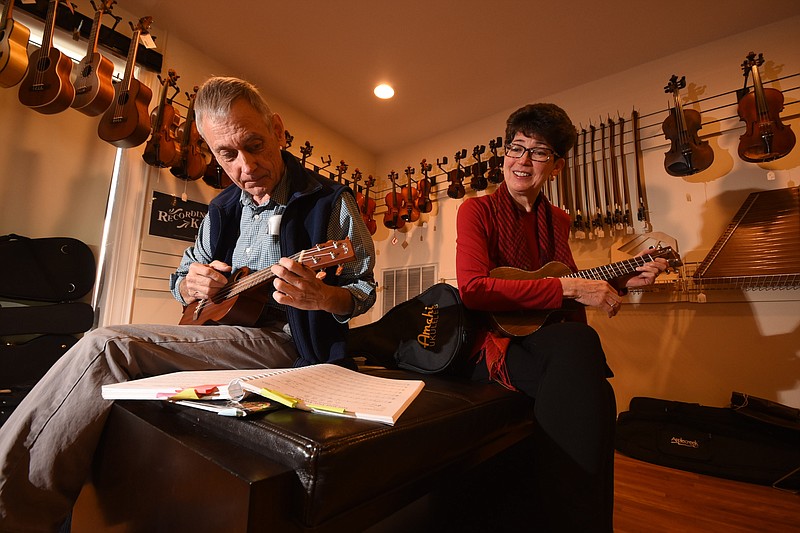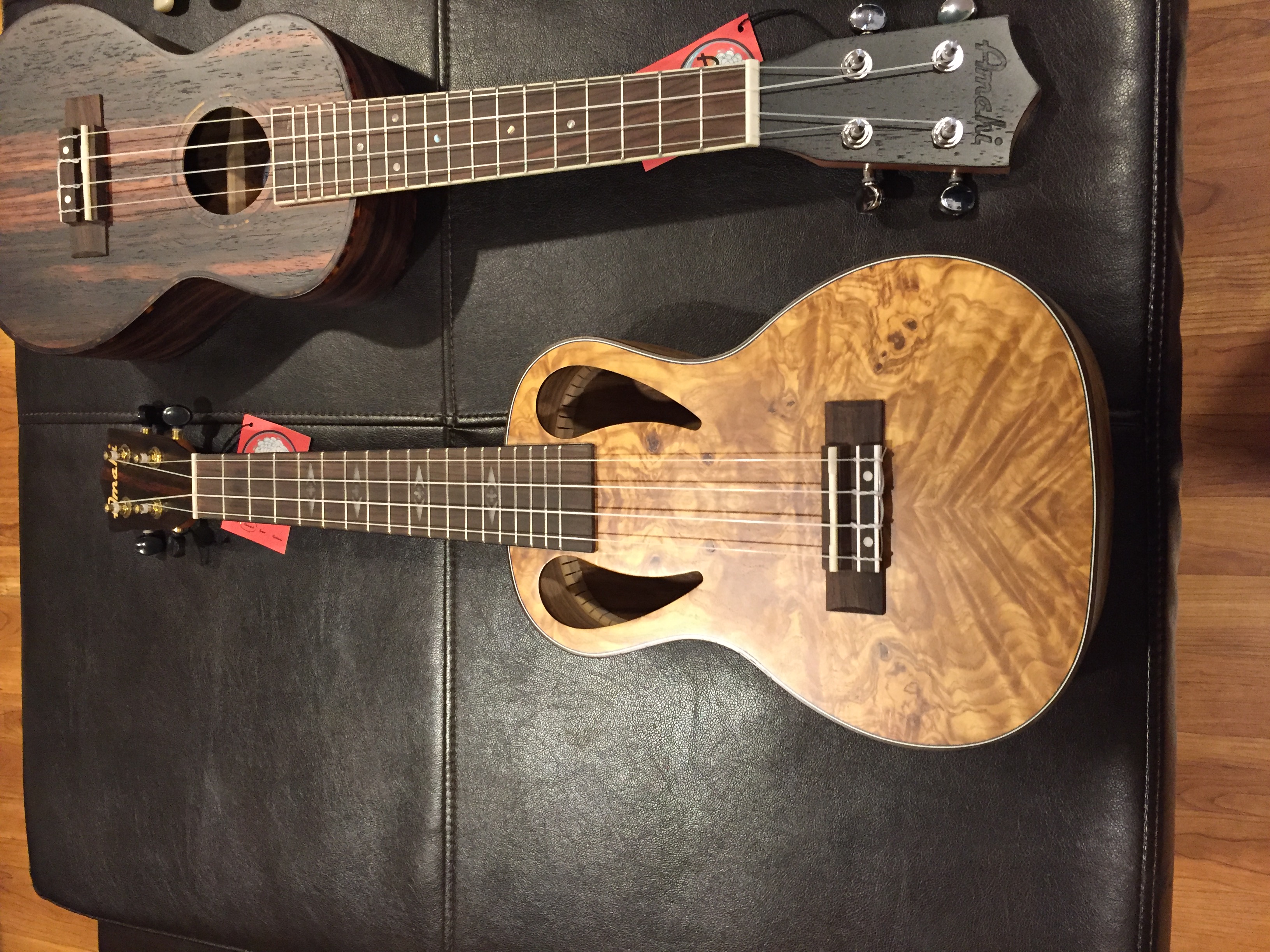If your only image of the ukulele is Tiny Tim playing "Tiptoe Through the Tulips" or if you see it as just a toy for kids, check out Jake Shimabukuro playing "While My Guitar Gently Weeps."
Or if you think the instrument was just recently discovered by the same young, hip, music-loving crowd that recently invented live music and craft beer, look up Roy Smeck, a 1930s-era player who could teach guitar gods Steve Vai or Eddie Van Halen a thing or two about shredding.
The truth is: The tiny instrument has been around for about 140 years, and it is currently one of the hottest-selling instruments in the world, including here.
"I sell more ukuleles than any other instrument in my shop," says Darren Patrick, owner of Mountain Music in St. Elmo.
And it's not a new trend. From 2009 to 2012, annual sales of ukuleles - or ukes, as many prefer - went from 501,000 to more than 1 million in the U.S., and sales have continued at more than 1 million per year since.
"It's been a gradual increase over the last 10 or 12 years," Patrick says.
On a recent visit to his shop, he has almost three dozen of the instruments on display and more to put out. He believes the almost cartoonish image of the weird-looking, weird-singing Tiny Tim playing the instrument back in the '70s likely diminished the instrument's cool factor, and it has taken a while for a new group of players to rediscover it.
"I think the younger generation doesn't remember the damage Tiny Tim did," Patrick says.
The ukulele is not the best-selling item at Picker's Exchange, a shop on Ringgold Road that specializes in new and used instruments and equipment, but sales have picked up significantly, says Jesse Blue, who works there as a luthier, someone who repairs stringed instruments.
"We do see a lot of them come through here [via sales]. A lot more so than I would have predicted 10 years ago," he says.
Patrick believes the renewed interest can be traced to an online video of Hawaiian musician Israel Kamakawiwo'ole playing "Somewhere Over the Rainbow" from 1993. Shimabukuro has also done much to make the uke cool, he says.
"Fifteen years ago, we couldn't give one away," Patrick says.
He says his ukulele customers come in all demographics, with teens and college students being the largest group of buyers.
"We sell a lot to teenage girls," adds Mountain Music salesman Trevor Dennison.
"We have parents buying them for their 3-year-olds, too," Patrick says. "Sometimes the kids say they want a guitar and parents buy one of these and tell them it's a guitar."
The two agree that the ukulele is appealing for several reasons. It is lightweight, making it easily transportable. You can throw it in a backpack or on the back seat and keep it nearby when the mood to play strikes. And it has only four strings, which are round and usually nylon, so it is easier on the fingers of beginners than a traditional guitar.
"It's also fun to play, and it has a happy sound," Patrick says.
Most people teach themselves using how-to books or online videos, but Mountain Music offers lessons as well.
"It is a very beginner-friendly instrument," Patrick says.
But not everyone who buys a uke is a beginner.
Signal Mountain resident Ed Bergin, 64, is a professional accordion player who has been playing since he was 11. He bought his first ukulele a year ago out of curiosity and because his girlfriend, Kathy Kessler, has also taken to the uke in a big way. She has now bought a soprano, bass, concert and baritone ukuleles, he says.
"What I like is the simplicity," Bergin says. "I also like the tone. You can play a lot of styles."
The ukulele has been associated with Hawaiian music since it originated there in the 19th century. Island musicians modified it from several small guitar-like Portuguese instruments such as the machete, the cavaquinho, the timple and the rajão.
"Ukulele" means "jumping flea," which could either be from the flying fingers employed by the player or the sound it makes. The instrument became a staple of Hawaiian music in large part because of David Kalakaua, a 19th century Hawaiian king who was a musician and lover of the arts.
These days, ukuleles come in a variety of sizes and styles. While you can spend just about as much as you want, Patrick says he mostly sells those from $39 to $200. Most are made by Cincinnati-based Amahi and come in several types of wood, including maple, koa, cedar, rosewood and mahogany.
"The cool thing about a ukulele is there is no standard, so you will see all them made of all kinds of materials and woods," Patrick says.
You can even get an electric one if you want it.
Contact Barry Courter at bcourter@timesfreepress.com or 423-757-6354.

